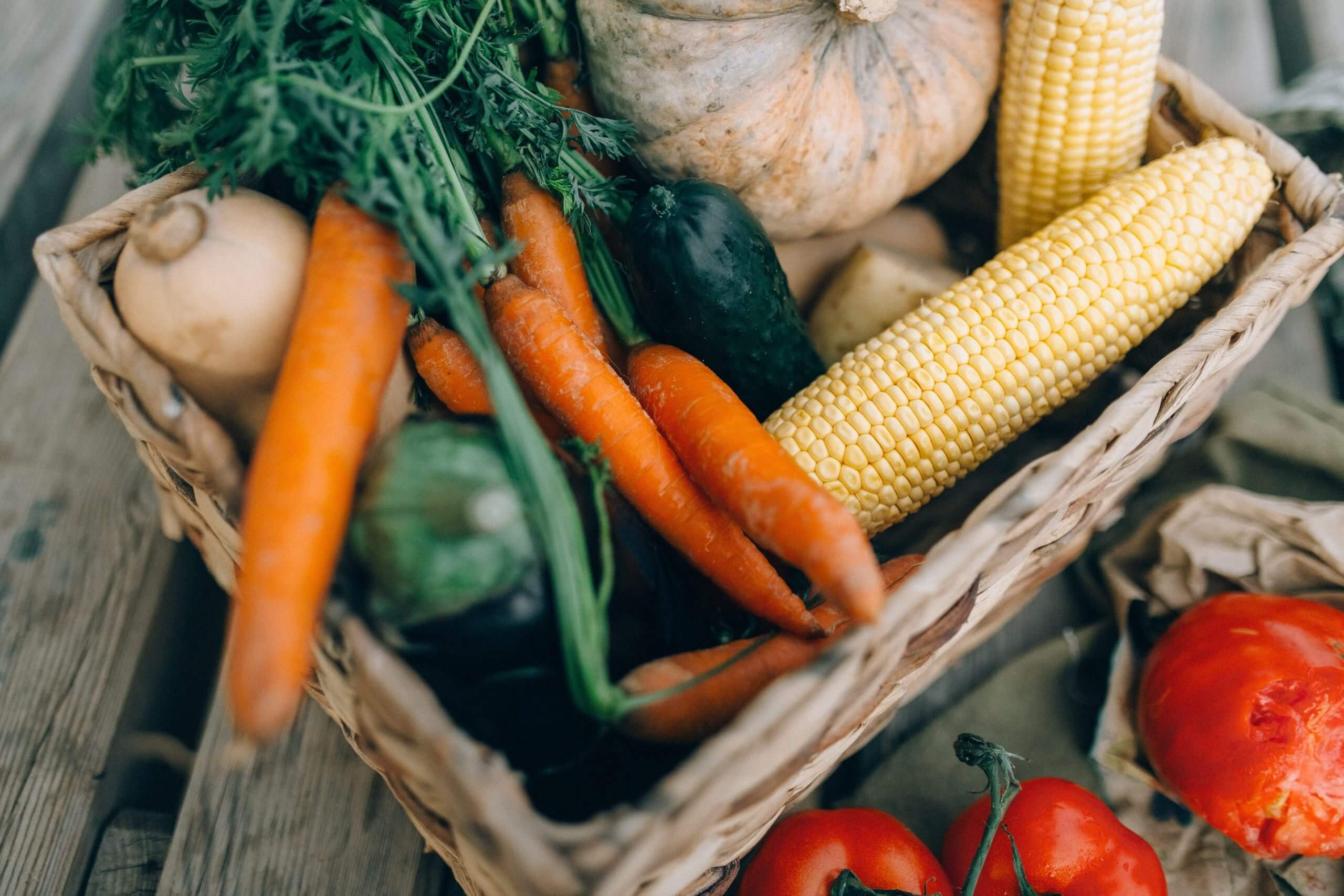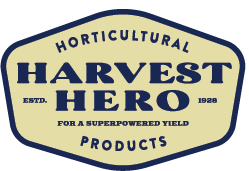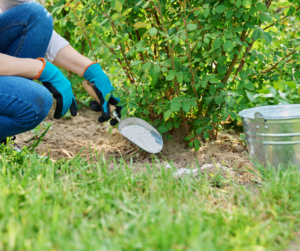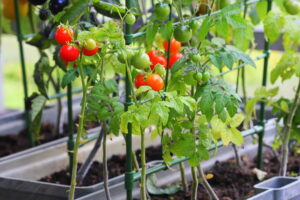Vegetable Fertilizer: What to Choose and When to Use Fertilizer

It’s every gardener’s goal: grow bigger, healthier plants and harvest more vegetables. There are many things you can do to support plant growth, like choosing the right soil, ensuring adequate sunlight, watering properly, and supplementing nutrients. With so many decisions to make, it can be hard to know what is right for your plants. Fortunately, we’re here to help you figure out your vegetable fertilizer! Learn what fertilizer to use and when to use it in your vegetable garden.
Why Fertilizer Is Important for Your Vegetables
Fertilizer provides your vegetables with the vital nutrients they need to thrive. Fertilizers are often categorized with three numbers indicating the ratio of nitrogen, phosphorus, and potassium, which are the three essential micronutrients all plants need to grow. When your plants have an adequate supply of nitrogen, phosphorus, and potassium, you can:
- Increase vegetable yields
- Improve soil quality to be able to support multiple crops in one year
- Improve soil texture
- Introduce essential bacteria
- Produce more predictable and stable vegetable yields
- Protect your plants against abiotic stressors
- Efficiently utilize your gardening space
What Vegetable Fertilizer Should You Use?
The best way to decide which fertilizer is right for your vegetable garden is to get a basic soil text from your garden center and see what your soil’s fertility level is. This is important because it is possible to overfertilize your soil and cause nutrient burn, which is treatable but puts your plants at risk.
Once you have a basic idea of your soil’s nutrient profile, you can start a fertilizer to help you achieve your goals. Each of the three macronutrients plays a different part in supporting plant growth:
- Nitrogen (N) provides plants with the energy needed to grow and is the primary source of plant protoplasm. This nutrient helps plants synthesize amino acids, chlorophyll, nucleic acids, proteins, and enzymes. This nutrient is especially important for growing the foliage of the plant.
- Phosphorus (P) is vital for healthy roots, the basis of your plants’ success throughout all stages of growth. It is a key component of the energy unity of plants called ATP (Adenosine Triphosphate).
- Potassium (K) supports overall plant growth and activates dozens of important enzymes for protein synthesis, sugar transport, N and C metabolism, and photosynthesis. It is especially beneficial for flower response and helps grow deeper and strong roots.
While it’s possible to make your own fertilizer mix to support your growth goals at each growth stage, it’s much easier and more economical to buy a bag from your local garden center. You can evaluate and compare bags by looking at the NPK (Nitrogen Phosphorus Potassium) value. This is written in a series of numbers like 10-5-10, which represents a ratio of the nutrients.
Once you know what nutrient profile you need, you generally have two types of fertilizer to choose from, and which you choose depends on your growing style and goals:
- Organic fertilizers are made with natural and organic materials such as compost, plant products, manure, and animal products. While you might see an NPK value on the bag, the actual nutrient profile might vary, which isn’t surprising when you think about how manure and compost can vary. Organic fertilizers tend to work slower than inorganic ones, so they provide more stable nutrition.
- Inorganic fertilizers are designed so you know exactly what your plants are getting. There can be a wide variety of chemical components used to deliver nutrients. They work faster than organic fertilizers, which allows you to boost your plants based on immediate needs.
When Should You Fertilize Your Vegetables?
There’s not a one-size-fits-all answer for when you should fertilize your vegetables. It depends on what you’re growing and your USDA Plant Hardiness Zone. Generally, you should fertilize your garden soil before planting, though you can gently work in granular fertilizer into your soil around already-planted seedlings. (Liquid fertilizer should not be used during the early stages of growth because it can burn young roots.)
Fertilization timing during growth depends on when your vegetable is growing the most.
- Lettuce and leafy greens: These plants grow most in the early spring, so you can support growth by applying fertilizer at this time.
- Corn and squash: The most rapid growth happens during the middle of summer. Many gardeners use fertilizer at the time of seeding and then give a boost again at the beginning of summer.
- Tomatoes and potatoes: These plants use an abundance of nutrients to grow rapidly, so you should apply extra fertilizer in the middle of the growing season. You can encourage greater tomato growth by switching to a low-nitrogen fertilizer when flowers appear. This encourages your plant to produce more flowers instead of foliage.
- Cabbage, cauliflower, and broccoli: These plants can benefit from an extra supply of nitrogen three weeks after transplanting.
- Peas, beans, and cucumbers: Supply extra nutrients, especially nitrogen, after blossoming begins.
- Peppers and eggplants: Apply more fertilizer after the first fruit sets to help the next harvest grow.
Skip the Guesswork. Choose Harvest Hero to Help Your Plants Grow Further.
Harvest Hero Enhanced Perlite Mix is a nutrient-rich soilless amendment and growing medium that is a 3-in-1 blend comprised of perlite, diatomaceous earth, and essential nutrients. This patent-pending mix has been designed by Harvest Hero’s team of engineers and agronomists to improve soil structure for nutrition which promotes bigger plants and bigger yields. Harvest Hero Enhanced Perlite Mix will meet your plants’ needs throughout the first critical 6 weeks of growth by improving soil quality, providing plant nutrients, and amending soil properties to make it easier for the plant to absorb and translocate essential plant nutrients to the root system.
Consisting of domestically sourced perlite, diatomaceous earth, and essential nutrients, Harvest Hero’s 3-in-1 Enhanced Perlite Mix is unlike anything on the market. Try it today and see the difference Harvest Hero makes in your vegetable garden!



